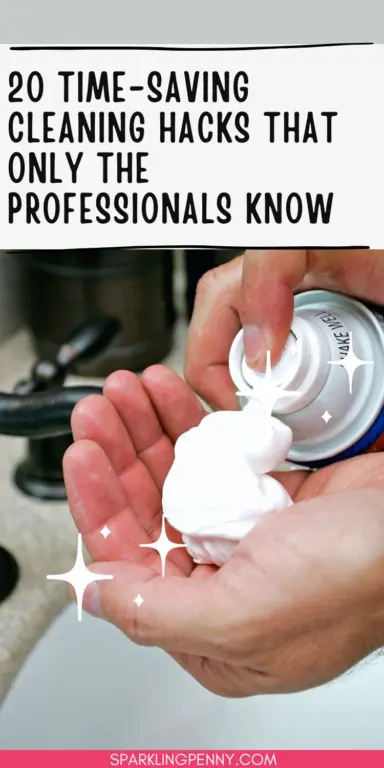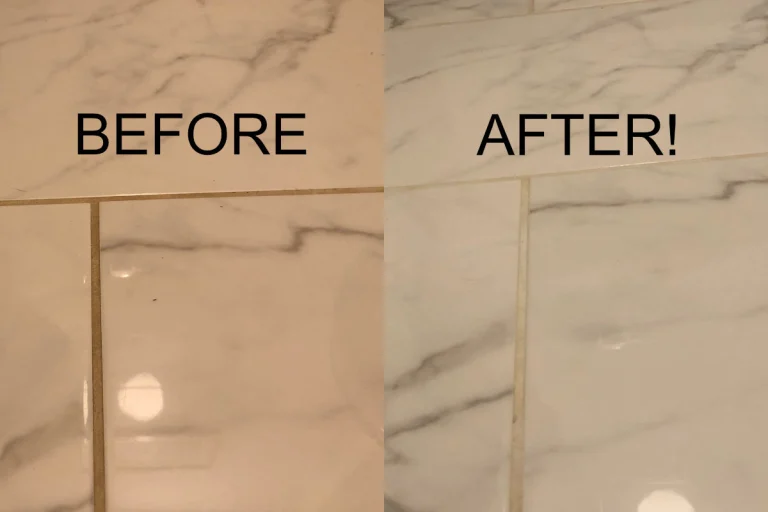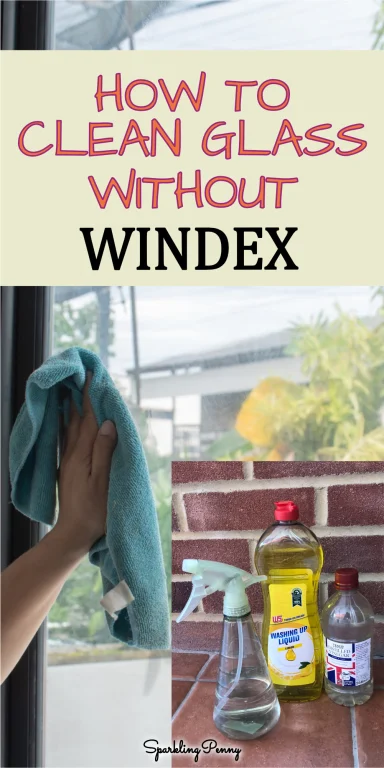When faced with an empty bottle of laundry detergent, you might wonder if that shampoo bottle in your bathroom could double up as a cleaning agent for your clothes.
While it’s not strictly meant for your laundry, shampoo can actually be used to wash clothes. Thanks to its formulation, which is designed to remove oil and dirt from your hair, shampoo can serve in a pinch to clean you clothes too.
However, there are a few considerations to keep in mind to ensure the best results and avoid potential issues.
- Typically, shampoos are gentler than standard laundry soaps, so they won’t be as harsh on delicate fabrics. That said, it’s vital to use only a small amount to prevent excessive suds that could overwhelm your washing machine.
- It’s also important to choose shampoos that are free of conditioners and heavy fragrances, as they might leave an unwanted scent or film on your laundry, such as 2-in-1 varieties.
While shampoo might help you tackle a load of laundry in a bind, it’s not a permanent replacement for laundry detergent. Shampoos lack certain ingredients that are specifically designed to deal with the type of dirt and odors found on clothes. So, although it’s useful in emergencies or for hand-washing a few items, its not a replacement.
Heads up: I sometimes use affiliate links. When you click these links and make a purchase, I may get a small commission. It won't cost you anything but it helps me to run this site.
Shampoo as a laundry detergent?
Shampoo and laundry detergent are both cleaning products, but they’re formulated for different types of cleaning. So you really shouldn’t switch them.
Would you use washing detergent on your hair? I don’t think so!
Isn’t shampoo basically the same as laundry detergent?
Shampoos and laundry detergents are both surfactants, which means they help water to mix with oil and dirt, so they can be rinsed away.
However, the specific surfactants used in shampoo are milder than those in laundry detergent. A shampoo’s formulation is designed to be gentle on hair and scalp, ensuring that it cleans without stripping away the natural oils.
Laundry detergent, on the other hand, contains stronger chemicals that target stains and odors in fabrics. It is formulated to be used in larger volumes of water and for the mechanical washing action provided by washing machines. Laundry detergents break down and remove dirt more effectively from clothing and other textiles.
Why you shouldn’t use shampoo as a washing detergent

Using shampoo as a laundry detergent is not recommended.
Here’s why:
- Shampoo lacks the enzymes and bleaching agents that are present in laundry detergent which are essential for thoroughly cleaning clothes.
- You would have to use a larger quantity of shampoo to match the cleaning power of detergent, making it an inefficient and potentially more expensive choice.
- Shampoo is likely to leave behind residues on your clothes because it’s not as easily rinsed out by a washing machine, potentially leading to a build-up on fabrics over time.
Which shampoo is best for your laundry?
When you’re in a pinch, shampoo can double as a laundry detergent. However, the type of shampoo you choose can affect the cleaning results.
To ensure your clothes come out clean without damage, it’s best to use a shampoo that’s mild and gentle.
Here are my tips:
-
Baby shampoo: Ideal for delicates and regular laundry, as it’s formulated to be gentle and typically free of harsh chemicals. It can also be used for unshrinking clothes and jeans.
-
Mild or gentle shampoo: A safe bet for washing clothes as it’s less likely to contain additives that can harm fabric fibers.
-
2-in-1 shampoo: Though convenient for hair care, it’s not recommended for laundry due to added conditioning agents that can leave residue on fabric.
Avoid shampoos with:
- Intense scents.
- Colorants.
- Moisturizers.
If you are unsure, always spot test your shampoo on a small, inconspicuous area of the garment to ensure that it will not cause any damage or discoloration.
Step-by-step guide to handwashing clothes

Using shampoo to handwash your clothes can be especially useful when traveling or when you run out of traditional laundry detergent.
- Prepare your sink: First, ensure your sink or bowl is clean to avoid staining or soiling your clothes further. Fill with lukewarm or cold water.
- Add shampoo: Pour a small amount of shampoo into the water. You won’t need much—just a teaspoon for a sink full of water. Swirl the water with your hands to mix and create a gentle soapy solution.
- Submerge your clothing: Place your clothes in the sink, ensuring they’re completely submerged. Avoid overfilling the sink; wash multiple batches if necessary for the best results.
- Soak: Allow your clothes to soak in the soapy mixture for 3-5 minutes. This helps to loosen any dirt or body oils.
- Gently wash: Wash each item individually, use a gentle squeezing action. Focus on any stained or particularly dirty areas, treating them with extra care.
- Rinse thoroughly: Drain the soapy water and rinse your clothes with clean water. Continue until all shampoo is removed.
- Wring out excess water: Gently squeeze the garments to remove excess water.
- Dry: Lay out a clean, dry towel and place the damp garment on top of it. Roll up the towel with the garment inside to absorb more water. Then, unroll and lay the garment out flat to dry completely, preferably in a well-ventilated area.
Always check the care labels on your clothes before using shampoo or any alternative cleaning method, as some materials require specific care.
Treating stains with shampoo
When faced with a sudden spill or spot on your clothes, you might wonder if shampoo can come to the rescue.
Shampoo is designed to dissolve oils and residues on your hair and scalp, which can make it a useful agent for treating certain types of stains on clothes.
Here’s how you can tackle stains using shampoo:
- Oil and grease: If you get these types of stains on your fabrics, you can apply a small amount of shampoo directly to the stain. Gently work it in with your fingers or a soft-bristled brush and allow it to sit for a few minutes before rinsing thoroughly.
- Tea and coffee: For these tannin-based stains, first rinse with cold water. Then, apply shampoo to the area and lightly rub it in. After letting it sit for up to five minutes, rinse the fabric again in cold water.
- Blood: Act quickly with blood stains by dampening the area with cold water. Then add a drop of shampoo and gently rub it over the stain. The sooner you treat it, the better the chance you have of removing it.
- Liquid stain: Whether it’s juice or soda, dab the stain with a towel to absorb as much liquid as possible. Apply shampoo and gently work it into the stain before rinsing with cold water.
After treating the stain, launder your garment as usual. Shampoo might not be as effective on older, set-in stains, and it’s always better to treat any spill as soon as it happens.
Can hair conditioner be used as a fabric softener?

Your typical hair conditioner is designed to make your hair soft and manageable, which is surprisingly similar to what a fabric softener does for your clothes. When you’re out of fabric softener, simply add a small amount of hair conditioner to the final rinse water of your laundry.
- Dilute the conditioner with one part conditioner to two parts water. One to two tablespoons of conditioner should be enough.
- Add the diluted condition to the fabric softener compartment so that it gets added in the rinse cycle.
I recommend you experiment with a small load first to avoid any unexpected results.
Frequently asked questions
Is it safe to use shampoo as a substitute for laundry detergent?
Using shampoo as a laundry detergent is generally safe for most clothing types. However, it’s formulated for hair, so it may not be as effective at removing certain stains or odors from fabrics.
What are the benefits of using baby shampoo to wash clothes?
Baby shampoo is typically gentler than regular shampoos and free from harsh chemicals, making it a safe option for washing delicate fabrics without causing damage or irritation. If you have sensitive skin, it could be a good option for you.
Can using a hair conditioner in the laundry help clean clothing?
Hair conditioner won’t clean your clothes, but it can be used to soften fabrics in the absence of a fabric softener. Use a small amount to avoid any greasiness or residue on your garments.
What other household items can be used to effectively wash clothing without laundry detergent?
Baking soda, vinegar, and dish soap are common household items that can also be used to clean your clothes. They are particularly handy for targeting specific stains and odors.
Are there any specific shampoos that are recommended for washing clothes?
Mild shampoos without intense fragrances or additives, such as baby shampoo or gentle shampoo varieties, are better choices for washing clothes to minimize the risk of damaging the fabric.
How does using shampoo to wash clothes compare to using body wash for the same purpose?
Shampoo is designed to remove oils, which can make it more effective than body wash for cleaning clothes. However, body wash is milder and less likely to leave a residue, which might be preferable for some delicate fabrics.












